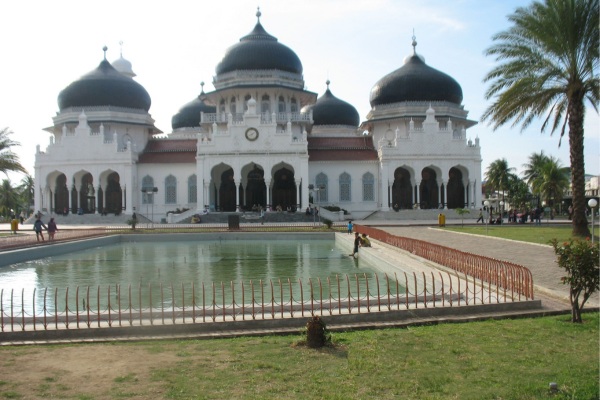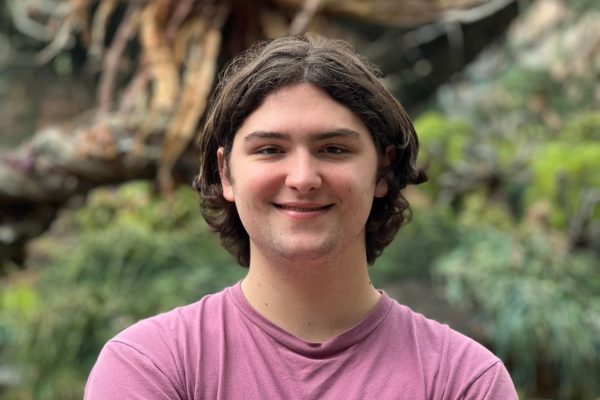UM-Flint first-year student to participate in overseas research study

One University of Michigan-Flint student will spend his summer overseas after being selected to be part of the "Trusted Faces, Familiar Places" study.
Keaton Reese, a first-year student working towards dual degrees in anthropology and computer science from Grand Blanc, along with other researchers from all three University of Michigan campuses as well as the Universitas Syiah Kuala in Banda Aceh, Indonesia, will examine why vaccination rates in Aceh, Indonesia, lag behind other parts of the country.
Reese and other researchers will be testing two possible interventions to improve these rates, including a "vaccine-in-a-van" program that will bring preventative medicine to local communities, and a partnership with local religious and health care professionals that will attempt to improve public perceptions of vaccinations. The study is funded by the University of Michigan's Center for Global Health Equity.
"On a basic level, vaccination is one of the most important tools for promoting health equity around the world," said Daniel Birchok, UM-Flint associate professor of anthropology. "The intention of the study, as a whole, is to help us understand how to promote higher vaccination rates in Aceh, Indonesia, and, hopefully, more broadly."
This will be Reese's first trip overseas, but he's confident that his background as an anthropology student will help him acclimate to his surrounding, adding that this study provides a unique opportunity to conduct ethnographic research – essentially spending time with people in the context of their lived social experiences, or as anthropologist Clifford Geertz described it, "deep hanging out."
"The opportunity to conduct ethnographic research and gain experience early on in my undergraduate career is invaluable," said Reese.

Reese added that the study being conducted in Southeast Asia is also a bonus.
"It's just one of the areas I am interested in studying as a graduate student, so an opportunity such as this is a dream come true for someone like me."
Birchok said that ethnographic research is important because it helps dispel assumptions about a group of people.
"Ethnography cultivates a methodology of discovery because researchers must work to suspend their own expectations when studying another culture's ideas, customs and values."
The study that Reese, Birchok and others are conducting will examine other elements of the region as well, such as its history of antagonistic relationship to central authority. Birchok said Acehnese people engaged in a drawn-out guerilla war against Dutch colonialism from 1873 until the 1910s, participated in two rebellions against the Indonesian government in the 1950s, and again from 1976 until 2005.
"All of these political struggles were articulated, to some extent, in terms of Aceh's identity as a place of particular importance to the development of Islamic history and culture in Southeast Asia," said Birchok. "This Islamic identity is very important to the way that both Acehnese and other Indonesians think about the region and its people to this day."
Birchok and Reese are interested in studying how the Acehnese's history of political struggles and Islamic identity may be affecting vaccine hesitancy and their overall perception of a vaccination program.
"We know that uptake on the measles, mumps and rubella combination vaccine suffers in the region, and this may be tied to questions regarding whether the vaccine is permissible for Muslims given that it is made with pig enzymes. It is forbidden to consume pigs in mainstream interpretations of the Islamic legal tradition," said Birchok.
Birchok is hopeful more opportunities to include UM-Flint students in overseas studies like "Familiar Faces, Familiar Places" will develop in the future.
Related Posts
No related photos.
Madeline Campbell
Madeline Campbell is the communications specialist for the College of Arts & Sciences. She can be reached at mciak@umich.edu.